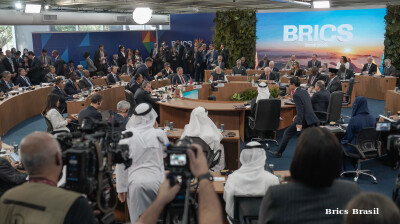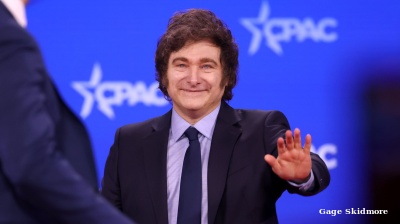Demonstrators have demanded that Libya’s Presidential Council dismiss interim Prime Minister Abdul Hamid Dbeibeh and remove all current ruling bodies during mass protests on the streets of Libya’s capital, Tripoli, Al Sharq Al Awsat reported on May 25.
The protestors gave the council a few days to respond to their demands. However, political experts believe that quickly forming an alternative government is practically impossible due to political divisions and power-sharing dynamics, especially in western Libya.
Tens of thousands of Libyans gathered in Martyrs' Square on what they called the Friday of Decisiveness. The crowds demanded government change as a priority for national stability.
In a statement, the protesters urged the Presidential Council to assume control of the country and called for a permanent constitution and national elections by July 25.
Although Presidential Council head Mohamed Al-Menfi did not directly respond to the demands, he praised the protests as a civilised national scene and encouraged continued peaceful demonstrations.
The protests send a clear message to the UN Mission in Libya (UNSMIL) to accelerate its political initiative and pressure local actors to engage positively with proposals to resolve the political deadlock.
UNSMIL and leaders of the Presidential Council said they are committed to de-escalation, peacebuilding, and compliance with international humanitarian and human rights law.
Heavy clashes broke out in the Libyan capital on May 12 as security tensions escalated in the central and western parts of the city. Abdul Ghani al-Kikli, the head of the Stability Support Apparatus, was killed during the violence. Following the escalation, the Government of National Unity (GNU) declared a state of emergency.
UNSMIL and the Libyan Presidential Council, acting as the Supreme Commander of the Armed Forces, then established a ceasefire committee to facilitate a permanent ceasefire, protect all civilians, and agree on security arrangements for the capital.
The renewed violence raises fears of a new wave of conflict in Libya, which has remained in a political stalemate since the ousting of former dictator Gaddafi in 2011. The country is divided between two rival governments and warring armed groups. The GNU controls Tripoli and the northwest, while a rival government, led by Osama Hamad and supported by the eastern parliament and General Khalifa Haftar, controls the east from Benghazi.
News

Bangkok’s once-untouchable powerbroker finds himself back behind bars
The ruling stems from a long-running controversy over whether the former prime minister ever properly served out a corruption sentence imposed when he returned from self-imposed exile in 2023.

Xi and Putin to join BRICS emergency talks on US trade measures
Brazil's President Lula rallies leaders from emerging economies for a virtual meeting to find a coordinated response to aggressive US trade measures.

Hungary's 4iG announces landmark acquisition of automaker Raba in partnership with Czech CSG
Acquisition is the centrepiece of 4iG's strategy to integrate ground mobility into a defence portfolio that already spans aerospace and satellite technologies.

Iranian officials to discuss nuclear file in Cairo
Iran's Foreign Minister may visit Egypt as Tehran expands regional diplomatic engagement to strengthen partnerships and discuss international developments amid nuclear talks.




